Bridging the mental health gap
Kaiser Permanente’s partnership with Fontana Unified School District brings much-needed mental health services.
Bridging the gap for mental health services in Southern California schools is a win-win for everyone.
People who face challenges related to lower economic opportunities often experience higher stress and have fewer resources for coping. Children and youth experiencing this stress have an increased likelihood of poorer mental and physical health.
The demand for mental health services in schools has steadily risen. According to the National Alliance on Mental Illness, half of all mental illnesses start by age 15, and 1 in 6 youth age 6 to 17 experience mental health disorders annually. Students often face challenges ranging from academic stress to peer pressure or family issues that impact their mental well-being. Unfortunately, some schools lack the resources to provide them with adequate mental health support.
To address this gap, Kaiser Permanente developed an innovative solution in 2018 that places child and adolescent psychiatry fellows, a unique specialty in high demand, within Southern California schools that have inadequate therapy services and lower economic opportunities.
Easier access to mental health support
Placing psychiatry fellows in partner schools ensures students have easier access to care. Psychiatry fellows foster a supportive and inclusive environment for emotional well-being.
“The presence of on-site psychiatry fellows sends a powerful message to students that their mental health matters and that help is readily available when they need it,” said Kevin Guber, MD, director of the Child and Adolescent Psychiatry Fellowship Program at Kaiser Permanente in San Bernardino County in California.
“Having psychiatry fellows onsite is a game-changer,” said Jeremy Chamberlain, a licensed marriage and family therapist at Fontana Unified School District in San Bernardino County. “It allows teachers and staff to focus on their core responsibilities while students' mental health needs are being addressed by trained professionals.”
Benefiting students, schools, and fellows
Psychiatry fellows help create a positive school culture where well-being is a priority, leading to improved academic performance and overall student satisfaction. Students can seek support without the stigma often associated with visiting an off-campus mental health facility.
Additionally, having psychiatry fellows visibly present helps students build trust and rapport, making students more likely to be open about struggles and seek the help they need. Also, many fellows go on to practice in the communities where they had their fellowship, helping to bridge the gap in mental health services availability and reduce the shortage of mental health care professionals.

April 10, 2024
For a new mom, talking about her worries helped her heal
One in 5 people experience depression, anxiety, or other mental health …

February 21, 2024
From planning his funeral to celebrating his wedding
Gabriel Abarca had no hope for his future. Then the team at Kaiser Permanente …

February 13, 2024
A legacy of life-changing community support and partnership
The Kaiser Permanente Watts Counseling and Learning Center started as a …

February 12, 2024
Proposition 1 would bolster mental health care in California
Kaiser Permanente supports the ballot measure to expand and improve mental …

February 2, 2024
Expanding medical, social, and educational services in Watts
Kaiser Permanente opens medical offices and a new home for the Watts Counselin …

January 29, 2024
Empowering minds to help others thrive
Supporting behavioral and mental health in communities where needs are …

January 23, 2024
How to bolster your child’s self-esteem
Everyday Health

January 22, 2024
Solutions for strengthening the mental health care workforce
Better public policies can help address the challenges. We encourage policymak …
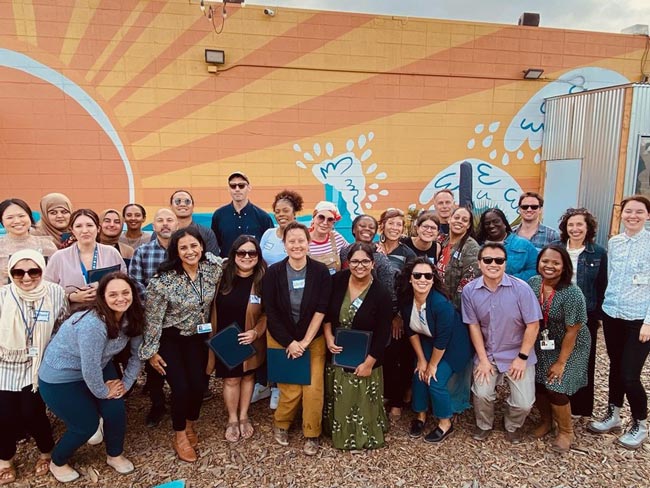
January 3, 2024
Addressing the shortage of mental health workers
There aren’t enough mental health professionals in the U.S. to meet the …

December 7, 2023
Safe, secure housing is a must for health
We offer housing-related legal help to prevent evictions and remove barriers …

November 29, 2023
Tapping into an array of mental health options
Pavan Somusetty, MD, explains how people who need support and guidance …

October 24, 2023
Childhood anxiety: What parents need to know
A child and adolescent psychiatrist shares tips on supporting your child …

September 27, 2023
Harvest your power
Use biofeedback to help manage stress.

September 27, 2023
From suicide survivor to mental health advocate
Former Major League Baseball player Drew Robinson shares his story of hope …

September 13, 2023
Mental health champion: A mission inspired by personal loss
San Diego Wave Fútbol Club star defender Naomi Girma, Kaiser Permanente …
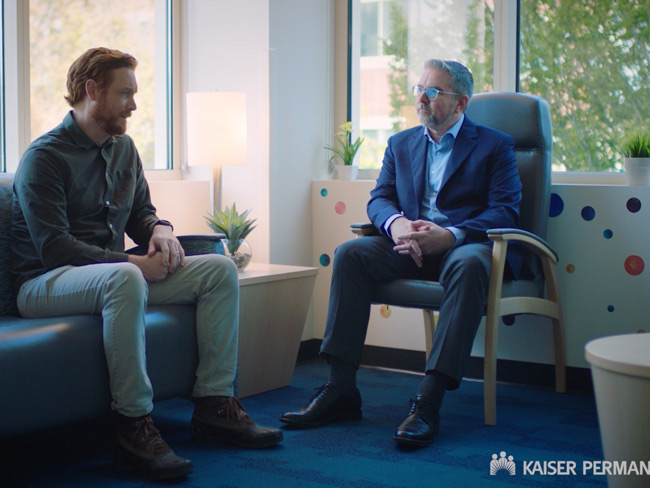
September 6, 2023
Recovery from addiction is possible
Our clinicians help patients get the care they need to move forward with …

August 28, 2023
Grants improve the total health of our communities
Kaiser Permanente increases access to mental health services in Southern …

August 10, 2023
Successfully navigating the school year
These tips from Don Mordecai, MD, Kaiser Permanente’s national mental health …
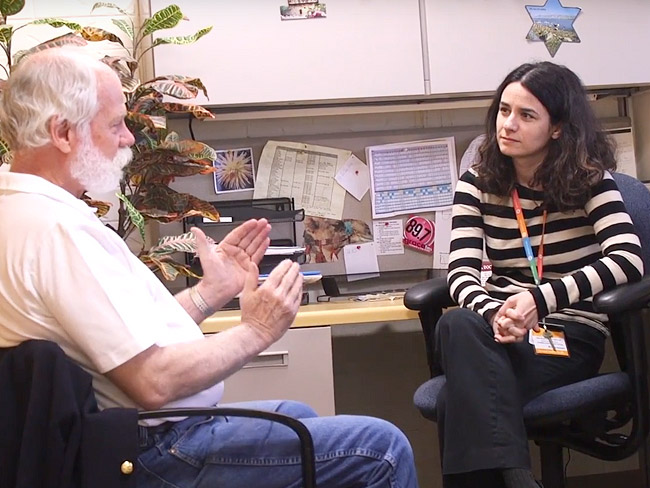
July 11, 2023
Cancer care for the body, mind, and spirit
Many people with cancer experience depression and anxiety. Mental health …

June 30, 2023
Men's mental well-being is a priority
Unique challenges and societal pressures can impact men’s emotional well-being …

June 28, 2023
Making waves to empower young girls
Kaiser Permanente and the San Diego Wave Fútbol Club host a second Wave …

June 23, 2023
Get the mental health support you need
Kaiser Permanente is here to help with care and valuable tools to support …

June 21, 2023
And that’s why they call postpartum the blues
Take time to adjust to a new baby and lifestyle changes — and reach out …

June 9, 2023
Mental health, addiction, and the power of a peer
Shared experience helps young people in Oregon build confidence for their …

June 7, 2023
Teen social media use may lead to depression
Creating a healthy relationship with social media can help safeguard the …

June 5, 2023
Understanding and living with bipolar disorder
A Kaiser Permanente member shares his personal journey of navigating bipolar …

May 22, 2023
Sidelined by injury, a former nurse seeks depression care
Susan Sandhu struggled to find meaning in her life after an injury forced …
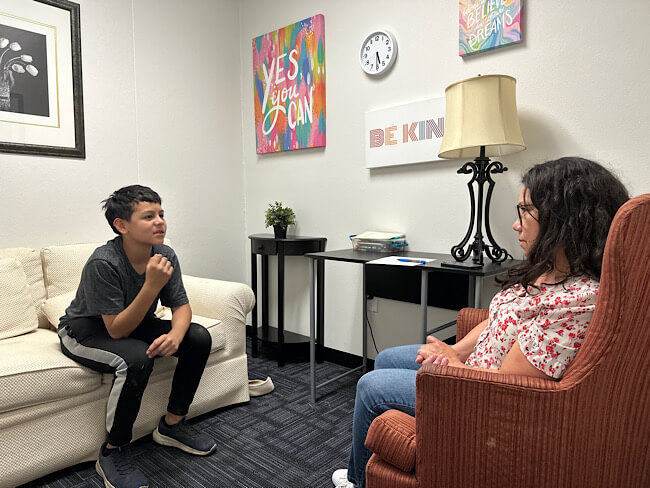
May 18, 2023
Addressing mental health trauma in a local community
Trauma-informed outreach efforts in Orange County are being recognized …

May 16, 2023
Managing trauma does not need to be traumatic
Expanded access to high-quality, affordable mental health care supports …

May 12, 2023
Understanding autism: Beyond the myths and misunderstandings
Early diagnosis and individualized care can lead to better outcomes for …

May 9, 2023
School shootings provoke anxiety in many children
Child psychiatrist defines anxiety, its symptoms, how to address it, and …
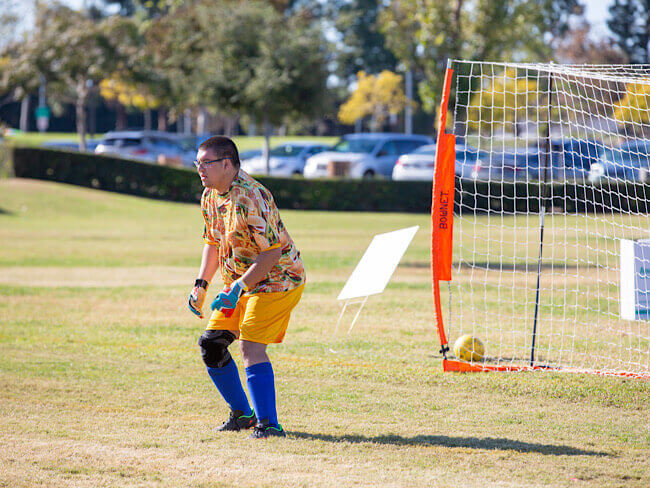
March 29, 2023
Volunteering helps create healthier communities
Kaiser Permanente’s partnership with Special Olympics Southern California …

March 24, 2023
Finding hope after a mental health and addiction crisis
Treatment for bipolar disorder and opiate addiction helps a Kaiser Permanente …

March 16, 2023
Supporting our children after acts of mass violence
Southern California psychiatrist offers practical advice for parents to …

March 13, 2023
Making waves with our first female sports ambassador
Kaiser Permanente in Southern California partners with San Diego Wave Fútbol …

March 7, 2023
For moments when you may not need to see a therapist
Kaiser Permanente provides members with convenient ways to improve their …

February 23, 2023
Eating disorders on the rise among teens
Expert shares 5 valuable tips for parents and guardians to help children …

February 2, 2023
Addressing social isolation in the Northwest
Kaiser Permanente invests $3.3 million to build healthy social connections …

January 19, 2023
Understanding stress and how to manage it
A Kaiser Permanente psychiatrist shares advice for coping when stress won't …

December 14, 2022
Help for people struggling with drug or alcohol use
Find addiction and recovery information, assessments, and ways to get support …

December 8, 2022
How to manage holiday stress: Tips for the whole family
Experience the best of the season by following these tips from an adult, …

November 30, 2022
Alcohol and the holidays: A healthier relationship
A behavioral health consultant in Portland, Oregon, shares how mindfulness …

November 14, 2022
It’s time to rethink health care quality measurement
To meaningfully improve health equity, we must shift our focus to outcomes …

October 25, 2022
Feel good by eating right
What you eat can impact your mental health.

October 5, 2022
Kicking unhealthy pandemic habits
Explore fresh ways to get motivated and incorporate wellness into your …

October 3, 2022
Notice the red flags waving around our youth
Recognizing the warning signs associated with suicide can help save lives. …

September 9, 2022
Minority youth mental health may not be elementary
Support, talk about, and advocate for kids’ mental health. Otherwise, greater …

September 7, 2022
How you can help prevent suicide
When someone you care about is struggling, it can be hard to know what …

August 29, 2022
For student athletes, mental wellness is a game changer
A sports medicine physician and mental health therapist discuss the mind-body …

August 22, 2022
5 tips for empty nesters
A child leaving home for the first time can cause parents feelings of both …

August 17, 2022
2021 annual report sheds light on another challenging year
We reflect on 3 major COVID-19 surges, urgent vaccination efforts, and …
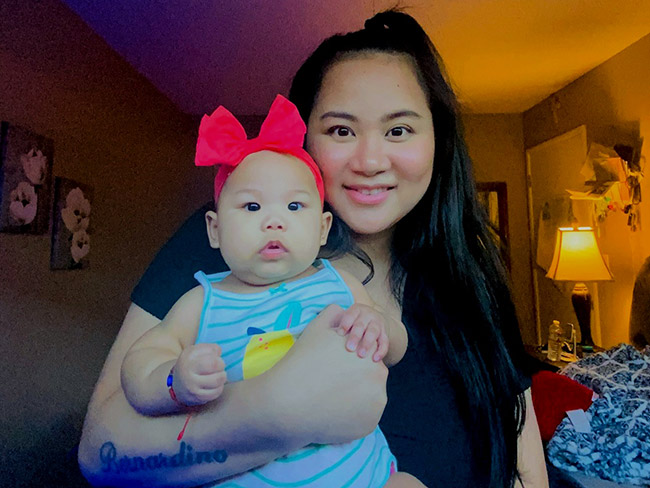
August 3, 2022
Supporting new moms in the postpartum period
By reaching out early and providing care that’s personalized to parents’ …

July 21, 2022
For better doctors, start with healthier medical students
At our school of medicine, future doctors learn that to better treat patients …

July 7, 2022
The crisis of youth mental health in America
In a new documentary, more than 20 young people share their stories: how …

June 23, 2022
Collaborative care for serious mental health conditions
An innovative telehealth program gives patients direct access to pharmacists …

June 23, 2022
Improving school health
A $60,000 grant will support the assessment of social-emotional health, …

June 16, 2022
Leadership and innovation to prevent gun injuries and deaths
Kaiser Permanente’s new Center for Gun Violence Research and Education …

June 14, 2022
Treatment for addiction to prescription pain pills
He needed help coping with back pain while ending his reliance on opioids. …

June 6, 2022
Get the better of your anger
Stress can easily become anger. But you can practice self-care to head …

June 2, 2022
Reducing your risk of dementia
A Kaiser Permanente physician shares new research and advice for the leading …

May 27, 2022
Sea una fuente de calma y consuelo
Las conversaciones honestas ayudan a que los jóvenes se sientan seguros …

May 25, 2022
Be a source of comfort and calm
Trusted conversations help youth feel safe when community violence occurs.

May 20, 2022
Thriving — in learning and in health
A community program dedicated to helping schools and districts meet the …

May 18, 2022
Initiative improves mental health in gaming community
Newly released results show the Presence of Mind initiative can be an effectiv …

May 3, 2022
One pill can kill: Understanding the risks of fentanyl
As overdose deaths skyrocket, an addiction medicine specialist explains …

May 2, 2022
After loss, 'It is OK not to be OK'
NBA player Onyeka Okongwu and his mother, Kate, a Kaiser Permanente nurse, …

April 29, 2022
Should you give self-care apps a try?
A recent survey shows that many people are turning to online wellness tools …

March 4, 2022
Online quiz helps predict likelihood of teen substance use
Assessment helps parents and caregivers intervene early when kids are at …

March 3, 2022
The pandemic’s toll on our kids’ mental health
Two years into the COVID-19 pandemic, a Kaiser Permanente pediatrician …

January 27, 2022
Eating disorders and COVID-19: The perfect storm
As unhealthy eating behaviors increased during the pandemic, care teams …

October 28, 2021
When things fell apart, telehealth was her lifeline
Stuck at home during the pandemic, a Kaiser Permanente member with autoimmune …

October 7, 2021
Is my child depressed or just sad?
Guidance to help parents understand when moodiness is a normal part of …

October 27, 2020
Sharing an innovative approach to youth mental health
Don Mordecai, MD, Kaiser Permanente’s national leader for mental health …

May 26, 2020
Managing addiction during the COVID-19 pandemic
Helping people strengthen connections, maintain healthy routines, and find …